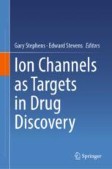Search
Search Results
-
Black-Box Warnings of Antiseizure Medications: What is Inside the Box?
Antiseizure medications can cause serious adverse reactions and have deleterious drug interactions that often complicate the clinical management of...
-
Effect of dietary supplementation with Lactobacillus helveticus R0052 on seizure thresholds and antiseizure potency of sodium valproate in mice
ObjectiveBoth animal and human studies, though limited, showed that multi-strain probiotic supplementation may reduce the number of seizures and/or...

-
Alpha-Pinene Exerts Antiseizure Effects by Preventing Oxidative Stress and Apoptosis in the Hippocampus in a Rat Model of Temporal Lobe Epilepsy Induced by Kainate
Oxidative stress and apoptosis following seizures play pivotal roles in the consequences of repeated seizures. Beneficial effects of alpha-pinene...

-
Epilepsy and ASM Formulations
Epilepsy, characterized by abnormalities in neuronal activity, remains a challenge for a significant proportion of patients despite the increasing...
-
Voltage-Gated Sodium Channels as Drug Targets in Epilepsy-Related Sodium Channelopathies
Voltage-gated sodium channels (VGSCs) drive cellular excitability in various cells including the neurons of the central nervous system. Genetic...
-
Pharmacoresistance in Epilepsy From Genes and Molecules to Promising Therapies
This new edition of Pharmacoresistance in Epilepsy addresses all issues relating to drug-resistance in epilepsy, including studies in patients as...

-
Analysis of the action mechanisms and targets of herbal anticonvulsants highlights opportunities for therapeutic engagement with refractory epilepsy
Epilepsy is a neurological disorder characterized by spontaneous and recurring seizures. It poses significant therapeutic challenges due to diverse...

-
Changes in Targets as an Explanation for Drug Resistance in Epilepsy
Drug resistance in epilepsy is a condition that limits the control of seizure activity. The drug target hypothesis postulates changes in those...
-
Pharmacogenetics in Epilepsy and Refractory Epilepsy
Pharmacogenomic studies in epilepsy are necessary due to the high prevalence of this disease and the high percentage of drug resistance phenotype....
-
On Complexity and Emergence: Linking the Hypotheses of Pharmacoresistance in Epilepsy
Epilepsy is a complex disease mainly defined by the susceptibility to spontaneous recurrent seizures but is also often associated with complex...
-
Therapeutic Drug Monitoring of Lacosamide in Chinese Pediatric Patients with Epilepsy: Efficacy and Factors Influencing the Plasma Concentration
Background and ObjectiveThe impact of individual patient variables on drug metabolism is particularly important for antiseizure medication, and...

-
Why Study Drug-Resistant Epilepsy?
Drug-resistant epilepsy (DRE) represents an important challenge because currently available pharmacological therapies fail to control this condition....
-
Genes Involved in Pharmacoresistant Epilepsy
This chapter is devoted to drug-resistant epilepsy and its genetic mechanisms. There are currently six hypotheses proposed for pharmacoresistant...
-
On the Development of New Drugs for the Treatment of Drug-Resistant Epilepsy: An Update on Different Approaches to Different Hypotheses
Despite the continuous expansion of the available pharmacological options for the treatment of epilepsies and remarkable advances in understanding...
-
Application of Proteomics in the Study of Molecular Markers in Epilepsy
Proteomics has helped us to understand physiological functioning as well as pathological condition. Mesial temporal lobe epilepsy (MTLE), the most...
-
Clinical management of contrast-induced neurotoxicity: a systematic review
BackgroundContrast-induced neurotoxicity (CIN) is an increasingly recognised complication following endovascular procedures utilising contrast. It...

-
Development of SV2A Ligands for Epilepsy Treatment: A Review of Levetiracetam, Brivaracetam, and Padsevonil
Epilepsy is a common neurological disorder that is primarily treated with antiseizure medications (ASMs). Although dozens of ASMs are available in...

-
Contribution of the Antiepileptic Drug Administration Regime to Avoid the Development and/or Establishment of Pharmacoresistant Epilepsy
Although drug-resistant epilepsy has been explained by different mechanisms, the most accepted one involves overexpression of efflux transporters at...
-
Seizure control by adding on other anti-seizure medication on seizure during levetiracetam administration in patients with glioma-related epilepsy
BackgroundEpilepsy is a major symptom in patients with glioma. Levetiracetam (LEV) is recognized as a first-line treatment for glioma-related...

-
GABAergic Neurotransmission Abnormalities in Pharmacoresistant Epilepsy: Experimental and Human Studies
Despite the fact that there are several drugs available for the treatment of epilepsy, pharmacoresistance remains a major challenge in seizure...
